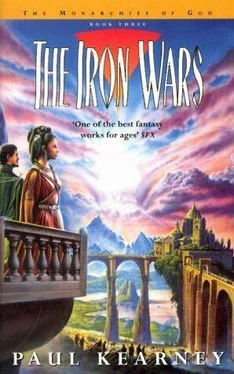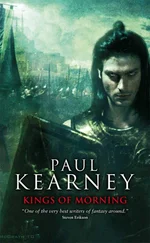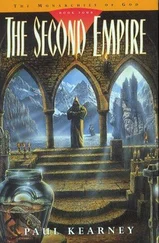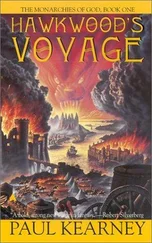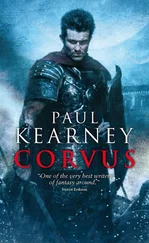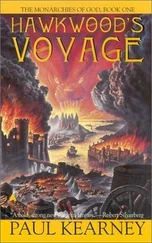Paul Kearney - The Iron Wars
Здесь есть возможность читать онлайн «Paul Kearney - The Iron Wars» весь текст электронной книги совершенно бесплатно (целиком полную версию без сокращений). В некоторых случаях можно слушать аудио, скачать через торрент в формате fb2 и присутствует краткое содержание. Жанр: Фэнтези, на английском языке. Описание произведения, (предисловие) а так же отзывы посетителей доступны на портале библиотеки ЛибКат.
- Название:The Iron Wars
- Автор:
- Жанр:
- Год:неизвестен
- ISBN:нет данных
- Рейтинг книги:4 / 5. Голосов: 1
-
Избранное:Добавить в избранное
- Отзывы:
-
Ваша оценка:
- 80
- 1
- 2
- 3
- 4
- 5
The Iron Wars: краткое содержание, описание и аннотация
Предлагаем к чтению аннотацию, описание, краткое содержание или предисловие (зависит от того, что написал сам автор книги «The Iron Wars»). Если вы не нашли необходимую информацию о книге — напишите в комментариях, мы постараемся отыскать её.
The Iron Wars — читать онлайн бесплатно полную книгу (весь текст) целиком
Ниже представлен текст книги, разбитый по страницам. Система сохранения места последней прочитанной страницы, позволяет с удобством читать онлайн бесплатно книгу «The Iron Wars», без необходимости каждый раз заново искать на чём Вы остановились. Поставьте закладку, и сможете в любой момент перейти на страницу, на которой закончили чтение.
Интервал:
Закладка:
The Cathedrallers were on the move less than ten minutes later. They shook out into three parallel columns, each over four hundred men strong. Corfe, Cerne and Morin made a little arrow of riders at their head. The monumental, earth-trembling roar of the battle ahead was rising to a climax. Corfe hoped he would not find the western forces completely swept away when they reached the top of the ridge. There would be nothing for it then but a headlong retreat to Torunn, the inevitable brutality of another siege. Defeat, utter and final. He found himself mouthing childish prayers he had not uttered in decades as his horse ascended the north-west slope of the ridge which hid the battlefield from view. He had never felt so alive, so aware , in his entire life.
They were still fighting, but they had their right flank hopelessly encircled. A dozen Fimbrian pike tercios there had gone into square and were completely surrounded, a sea of the enemy breaking against the grim pike points and falling back, the Fimbrian formation as perfect as though it were practising drill on a parade ground. In the centre, the Fimbrians and Torunnans were close to being overwhelmed. Their line had given ground, like a bow bending, and was now concave. Soon, it would break, and the western armies would be split in two. Only on the left, scarcely half a mile from where Corfe’s men were forming up on the ridge, was there any hope.
The Merduks on the left still had not manned the crest of the hill, and the Cathedrallers spread out along it in battle-line, four horses deep. Corfe could see some of the enemy below pointing at the newly arrived cavalry on the hilltop, but they would also see the Merduk armour they wore. He had a few minutes on his side.
The Cathedrallers were in position. A line of horsemen six hundred yards long, four ranks deep, completely silent, spectators of the vast carnage in the valley below them. Their scarlet armour gleamed in the thin sunlight, their banner flapped in the raw wind. Some of the enemy were becoming worried now about the motionless cavalry on the hill. A few hundred men had spread out into skirmish-line to counter any move round the Merduk right flank.
Corfe cantered over to Andruw and put out his hand. “Good luck, Haptman. If we don’t meet again, it’s been an honour serving with you.”
At that, Andruw grinned, gripping Corfe’s iron gauntlet in his own. “We have seen some sights, Corfe, haven’t we?”
Corfe took up the position he had assigned for himself in the middle of the front rank. He turned to his trumpeter. “Cerne, sound me the charge.”
Cerne, a heavily tattooed savage who would gladly have died for his colonel, raised his horn to his lips and blew the five-note hunting call of his own hills. Corfe drew out John Mogen’s sword, and it flashed like a quiver of summer lightning above his head. Then he kicked his mount into motion, whilst around him the line began to move, the ground shook at the thunder of over five thousand hooves, and the battle-paean of the tribes issued from a thousand throats.
The Merduks in the valley looked up, and the Torunnans and Fimbrians who were fighting their desperate battle for survival saw a long line of cavalry come raging down from the hilltop like a scarlet avalanche. One thousand two hundred heavy horses carrying men in red iron, their lances a limbless forest against the sky, and that terrible, barbaric battle-hymn roaring down with them.
They sped into a gallop, their lines separating out, and the wicked lances came down from the vertical. The Merduk skirmishers took one look at that looming juggernaut, and began to run.
The first rank of the Cathedrallers rode them down, spearing them through their spines and galloping on. Half a dozen of the horsemen went down, their mounts tripping on the broken ground, but they closed the gaps and kept coming. The main Merduk formations below frantically tried to change their facings to meet this new, unlooked-for enemy clad in their own armour but glowing red as fresh blood and singing in some barbaric tongue. A regiment of Hraibadar arquebusiers stood to fire a volley, but the approaching maelstrom was too much for some of them to bear, and they ran also. Their formation was scrambled, even as the first rank of the Cathedrallers smashed into them.
The big horses rode down the Merduks as though they were a line of rabbits, and the terrible lances of the riders speared scores in the first clash. Horses went down, cart-wheeling, screaming, crushing friend and foe alike, but the charge’s momentum was too powerful to stop. They rode on, and behind them came the second rank, and the third, and the fourth. More horses falling, brought down by the corpses underfoot, their riders flung through the air to be trampled by the ranks behind them. Corfe lost sixty men in the first thirty seconds, but the Merduks died by the shrieking hundred.
The entire Merduk right wing recoiled, the Cathedrallers ploughing through it in a cataclysm of slaughter. The Merduks were crushed together so tightly that men in the centre of the press could not even raise their arms, and scores were trampled to death in Torunnan mud. The entire enemy battle-line shuddered backwards as officers tried to pull their men out of the disaster and reorganize them. But the Cathedrallers kept coming. Most of their lances were lost or broken now, and the tribesmen had swept out their swords and were cutting down the enemy like scythemen harvesting corn. Nothing could withstand the sheer impact of those hundreds of tons of flesh and muscle and steel, but they were slowing down. The sheer numbers of the enemy were bringing the charge to a halt, and while the horsemen had speared and hacked and crushed a path into the very heart of the Merduk right wing, they were now becoming surrounded as reserve regiments were rushed up around them.
Corfe could feel blood stiffening on his face. His horse’s neck was black with it, and the Answerer was shining vermilion to the hilt. This was the first time since Ormann Dyke that he had met Merduks on the battlefield, and for a few minutes he had forgotten he was an officer, the commander of an army. He had ridden into the enemy with the fury of an avenging angel, screaming wordlessly, his battle-cry the silent reiteration of his dead wife’s name ringing through his mind like an agonizing accusation. Men had quailed before the naked murder on his face, and always in the charge he had been the foremost, desiring only to kill, forgetting strategy and tactics and the responsibilities of command. But now the battle-lust was fading, and he was seeing clearly again.
He pulled his mount out of the front line and looked around, panting, gauging the situation. He glimpsed the fresh enemy forces manoeuvring off to his left, and knew that his men had shot their bolt.
Cerne was still beside him, a bloody apparition of war, his eyes a maniacal glitter under his helm. “Stay by me,” Corfe told him, and forged through the murderous press of men and horses off to the right.
Black-clad infantry here, pikes outlined against the sky. His men had broken through to the Fimbrian line. Something tugged at Corfe’s shoulder, and he instantly raised his sword to strike but found Joshelin at his side. The veteran Fimbrian had a look in his eyes not unlike that in Cerne’s, and a wild gaiety about him.
“I’ll get them to pull back,” he shouted over the road. “I’ll talk to them. They’ll take it from me. But you have to get your men up the hill, or they’ll be overwhelmed!”
Corfe nodded. Joshelin gave him a crisp Fimbrian salute, and then rode off into the heart of his countrymen’s lines.
This was the hardest part, the worst manoeuvre to undertake in war-a fighting withdrawal. Did the Fimbrians have enough left in them to cover it? And where was Martellus?
Читать дальшеИнтервал:
Закладка:
Похожие книги на «The Iron Wars»
Представляем Вашему вниманию похожие книги на «The Iron Wars» списком для выбора. Мы отобрали схожую по названию и смыслу литературу в надежде предоставить читателям больше вариантов отыскать новые, интересные, ещё непрочитанные произведения.
Обсуждение, отзывы о книге «The Iron Wars» и просто собственные мнения читателей. Оставьте ваши комментарии, напишите, что Вы думаете о произведении, его смысле или главных героях. Укажите что конкретно понравилось, а что нет, и почему Вы так считаете.
